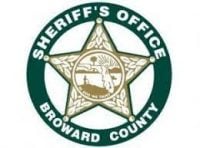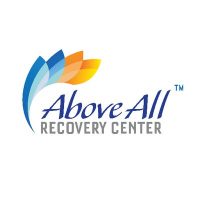Broward County Sheriffs Office - Drug Treatment
Drug Rehab Center in Fort Lauderdale, Florida
Broward County - Drug Court Treatment Division in Fort Lauderdale, Florida is an accredited addiction treatment facility providing comprehensive care, including drug rehab, dual-diagnosis treatments, and aftercare support, for individuals struggling with alcoholism and drug addiction.
About Broward County Sheriffs Office - Drug Treatment in Florida
Broward County - Drug Court Treatment Division is an accredited alcoholism and drug addiction treatment facility located in Fort Lauderdale, Florida. They hold certifications from the Substance Abuse and Mental Health Services Administration (SAMHSA) and are also licensed by the state. The facility primarily focuses on treating individuals suffering from alcoholism, dual diagnosis, opioid addiction, and drug addiction. With their dedication to comprehensive care, Broward County - Drug Court Treatment Division offers a range of services including aftercare support, drug rehab, dual-diagnosis treatments, and outpatient levels of care.
At Broward County - Drug Court Treatment Division, individuals struggling with addiction and substance abuse can find a variety of supportive services. These offerings include drug rehab programs, outpatient care, and dual-diagnosis treatment options. The facility is well-equipped to address both alcoholism and drug addiction, providing specialized support to help individuals overcome their specific challenges. In addition, Broward County - Drug Court Treatment Division places a strong emphasis on aftercare, recognizing the importance of ongoing support for long-term recovery.
Genders
Ages
Modality
Additional
Accreditations
State License
SAMHSA
Conditions and Issues Treated
Opioid addiction has become a significant health problem in the United States. In 2015, there were 91 opioid overdose-related deaths per day, with a substantial increase in mortality rate in 2014.
When opioid addiction has reached a point where a person’s life becomes unmanageable, treatment options are available to help them get sober. Treatment that includes medical care with medications and counseling can help a user transition into sobriety.
When someone in struggles with both addiction and mental or emotional illness, this is considered a dual diagnosis. Dual diagnosis treatment can include therapy for these issues to happen simultaneously, which will allow either of them to be treated effectively.
Sometimes people who have suffered from addiction disorder also suffer from co-occurring disorders such as depression, anxiety, bipolar disorder, etc., making them “dual diagnoses.” Dual diagnoses require specialized treatment programs where drug and alcohol addiction are addressed along with psychiatric illnesses. Some rehabilitation facilities provide patients suffering from cooccurrences a program with highly integrated services and a clean environment with few distractions to help them succeed.
Levels of Care Offered
This center offers a variety of custom treatment tailored to individual recovery. Currently available are Aftercare Support, Drug Rehab, Dual-Diagnosis, Outpatient, with additional therapies available as listed below.
Outpatient treatment is often used for drug addicts in drug rehab. Outpatient treatment consists of counseling and therapy sessions. This form of treatment is also called ‘day-treatment’. The outpatient treatment process begins with the addict’s initial detox period, lasting about ten days.
Outpatient treatment is used for those who are at moderate risk for ‘slipping back’ into the addiction, for those who:
- Are not currently experiencing any side effects from withdrawal and can handle social pressure
- Can handle stressors that might trigger relapse
- Have a stable living environment or have moved out of their previous environment, which was not conducive to being sober
- Have a support system that allows them to go to a facility a few times a week while still keeping their current responsibilities
- Have no legal obligations, being either on parole or probation, that require them to seek treatment at a mandatory facility
- Are not currently experiencing any side effects from withdrawal and can handle social pressure
- Have a stable living environment or have moved out of their previous environment, which was not conducive to being sober
Completing a drug or alcohol rehab program is only the first step. Then comes aftercare support. These services include sober living accommodations, career counseling, and AA/NA programs for those struggling with sobriety or who want help maintaining it after initial rehab at an addiction facility.
They can last up to a year or more depending on what’s needed most urgently after the earlier stages are completed.
Therapies & Programs
Because no single treatment is effective for all addicts, the goal of treatment and therapy should be to figure out what works best for each individual. Tolerance and withdrawal levels differ from person to person, affecting the treatment intensity required. Addiction treatment should aim to help addicts develop healthy coping mechanisms for dealing with their addiction and its underlying causes.
Family therapy is beneficial for people who are in addiction treatment services because it offers addicts the opportunity to work with their family members to better understand what led them to make choices that contributed to their addiction.
This type of therapy helps family members reach a deeper understanding of how they can best support their loved one during recovery. It also helps the addict better understand their own motivations and triggers that led them to turn to substance abuse.
Family therapy can help addicts in the following ways:
- Assists family members in processing difficult feelings so they don’t blame or resent recovering addicts
- Assists family members in understanding how addiction has impacted the addict and everyone who is involved with them
- Allows the addict to take responsibility for their actions, while encouraging improved communication skills
- Helps family members understand how to best support an individual in recovery so addicts don’t relapse again.
Group therapy can help build a stronger support system and give addicts in Fort Lauderdale, FL insight into their addiction that they gain through shared conversations. Group therapy occurs in a controlled group environment, exclusive of one on one meetings. This makes it safer for patients to feel comfortable sharing the struggles they’re going through and gaining perspective.
Trauma therapy is beneficial for people who are recovering from drug addiction because it helps them heal from past traumas that may have caused them to turn to harmful substances or led them to experience negative emotions that contributed to their destructive behaviors.
This type of treatment works by processing difficult experiences so individuals can learn how to process these events without having to turn to substances for coping.
Trauma therapy can help addicts in the following ways:
- Helps individuals understand their experiences and emotional responses to difficult events, including why they turned to drugs or alcohol
- Provides them with comfort and support while working through difficult emotions related to these traumatic experiences
- Offers an opportunity for addicts to have a voice and be heard, which can improve their self-esteem
- Can help them develop coping skills so they can better respond to triggers instead of turning to substance abuse.
Cognitive-behavioral therapy is a technique that is used to help people with addiction. Specifically, it is a way of identifying thoughts and behaviors that cause the addiction. It is typically used in an individual counseling session.
The content explains cognitive behavioral therapy and how it works to address some behaviors that may be leading to unintended consequences in their life, as well as its benefits for those seeking sobriety.
It works by helping people to talk through their issues and addressing the thoughts that cause said behaviors. It is an excellent way of learning about oneself and one’s perception of the world.
Payment Options Accepted
For specific insurance or payment methods please contact us.
Additional Details
Specifics, location, and helpful extra information.
Fort Lauderdale, Florida 33313 Phone Number(954) 497-3610 Meta DetailsUpdated November 25, 2023
Staff Verified
Broward County Sheriffs Office - Drug Treatment Patient Reviews
There are no reviews yet. Be the first one to write one.
Fort Lauderdale, Florida Addiction Information
Florida is one of the nation's epicenters for substance abuse and drug-related overdoses. In 2014, around 410,000 Florida residents were addicted to drugs and alcohol. Over the last 10 years, 12% of all deaths in the state were attributed to substance abuse. Treatment admissions for alcohol reached 24,329 patients in 2016, and 2.5% of Florida high school students admitted to using crack cocaine.
In 2017, there were 200 deaths due to drug overdoses in Broward County, including Fort Lauderdale. This was a significant increase from the 155 deaths that occurred in 2016. Approximately 21% of people aged 12 or older with an AUD also had a SUD. Drug addiction is a severe problem that can lead to crime, violence, and other social issues.
Treatment in Nearby Cities
- Leesburg, FL (210.1 mi.)
- Palm Springs, FL (33.4 mi.)
- Lecanto, FL (232.9 mi.)
- Wakulla Springs, FL (376.6 mi.)
- Harold, FL (511.5 mi.)
Centers near Broward County Sheriffs Office - Drug Treatment
The facility name, logo and brand are the property and registered trademarks of Broward County Sheriffs Office - Drug Treatment, and are being used for identification and informational purposes only. Use of these names, logos and brands shall not imply endorsement. RehabNow.org is not affiliated with or sponsored by Broward County Sheriffs Office - Drug Treatment.












